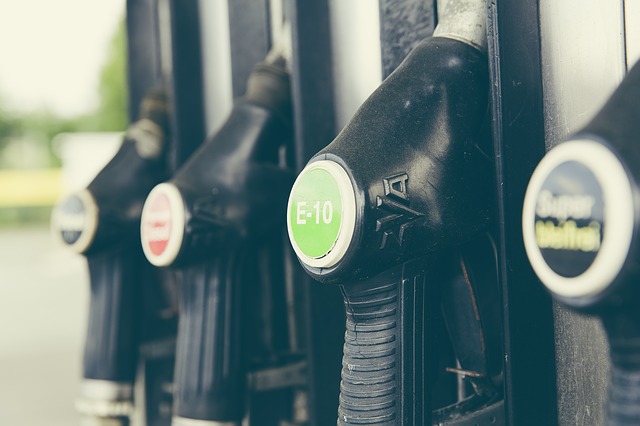Does it work to pour petrol from 98/100 octane?
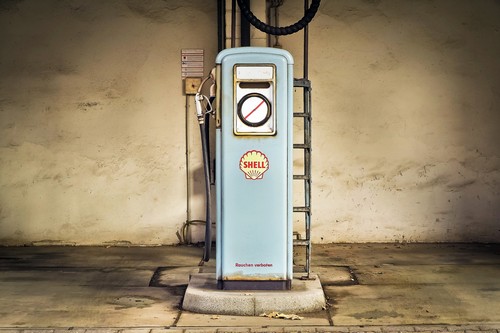
"I poured petrol of 100 octane and my car now goes as blizzard!"- have you ever heard such a statement? It probably is. And do you believe that high-octane gasoline actually also works on car? The story is not black and white, so we have to make an effort to explain as simply as we only entered additional confusion.
Misconceptions regarding octane
First, to clarify a common misconception – higher octane number does not tell us that a fuel "stronger", cleaner or better. Nor does it follow that the greaterenergy value, but that because of this car can develop more power.
What is octane number?
Octane number tells us how much pressure gasoline can withstand before (uncontrolled) light, and "detonate". In other words, octane number indicatesresistance to gasoline combustion when the mixture of gasoline and air starts to be compressed in the cylinder as the piston moves upward. This mixture can not be ignited by "voluntarily" before the candles cast a spark.
Whether in the car, which is scheduled for 95 octane can to pour petrol from 98 ili 100 octane?
you can freely. There will be absolutely no problem.
Whether in the car, which is scheduled for 98 ili 100 octane can to pour petrol from 95 octane?
you can freely. The computer that controls the engine will recognize that you are pouring fuel with lower octane than it should and will adapt the engine - ie. protect him from spontaneous combustion of the mixture in the cylinders. In this case, the engine will develop less force and torque.
Why is it important octane number?
Because the mixture of gasoline and air in the cylinder must not be burned before Svečica light a spark. Then the mixture begins to burn evenly and that pushes the piston down. From sparks moves "front" burning, such as designers and predicted.
However, if it comes to spontaneous combustion, or knocking combustion before the candles threw a spark or at the same time, occurs more points from where they spread "fronts" combustion, However, in the cylinder developing higher pressures and temperaturekoji have various negative effects on all parts of the engine.
When the engine by doing, usually hear specific "pinking", tapping sounds and the like.
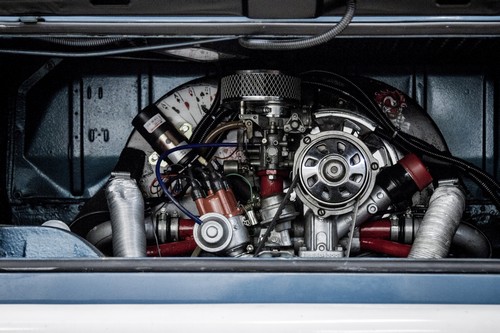
Will my car have more power if he pour petrol from 98 ili 100 octane?
If the engine of your car designed to run on petrol of 95 octane, there will be no increase in power, since, as we have already explained octanes do not indicate the amount of energy in the fuel. However, maybe i will…
Now I was confused…
The point is that modern engines are able to adapt to different gasoline octane levels.
Why then engine that uses gasoline from 100 octane develops more power?
Take a certain amount of air-fuel mixture. What is compressed into a smaller volume, it will its combustion will be able to "get out" more kinetic energy that pushes the piston, and that through connecting rods, crankshaft and some "miracles" tera wheels that turn. Physicists and masinci probably roll their eyes at such a definition, but what to do…
Therefore engines have higher compression relationship(degree of compression) can make better use of energy fuels and to develop more power from the same amount of fuel than the engine with lower compression relationship. Of course, not that simple…
What is compression relationship (or degree of compression)?
Compression ratio or compression - it is a relationship of volume (free space) in the cylinder when the piston is at the lowest point (lower dead point) and when it is at the highest point (upper dead point). What is compression relationship senior, engine can learn more useful energy from the fuel - so to speak…
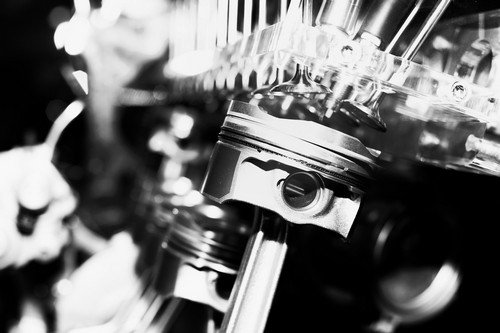
Will my car have more power if you pour petrol from 98 ili 100 octane?
Modern engines can be adapted to different octane values of gasoline. Depending on what kind of engine, that is designed to put the control system of the valve, injection and ignition, as well as the possibilities of computers on the basis of various parameters controlling engine operation, depending on the driving mode and the octane number of fuel, specific engine will be able to get more power out of the high gasoline.
It works complicated and is complicated. It is impossible without measuring the dynamometer to say how much of the power of a particular car developed with gasoline from 95 octane, and how with gasoline from 98 i 100 octane.
The situation is further complicated by the fact that some experts say that the engine must be extended to run on high-octane gasoline to the computer completely "accustomed" to him and that only then that particular engine can be based on its ability to extract the maximum potential out of the high gasoline.
By the same token, if a modern engine that is designed for 100 octane petrol poured from 95, computer that controls the engine will adapt his work to protect the engine, but this will lead to a drop in power and torque.
How does this engine adapts to different fuel octane values?
Since the high-octane gasoline resistant to self-ignition (detonation), the possibility of subsequent ignition spark plug, achieving a higher pressure (or compression – no compression ratio / degree, since these are two different things).
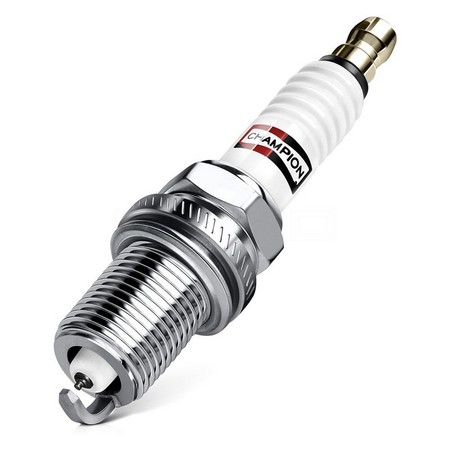
So, after the cylinder reached more pressure before the fuel is ignited, leads to more efficient use of fuel.
Namely, Let's say that in theory spark needed to throw a spark when the piston comes in the top dead point, or when to stop and have to go down, to burning mixture of fuel and air with full force pushed the plunger. However, in praksita mixture can not burn now– spark spark plug ignites the mixture in its immediate vicinity, and then from there expanding combustion front, with the increase of pressure and temperature. As the piston moves at high speed, while the combustion reached sufficient intensity, the plunger would have "raced" down.
Therefore, the ignition system is adjusted so that the candles cast a spark before the piston reaches the top dead point. That moment the spark necessary to precisely determine how to mixtures completely burnt, received the maximum pressure to hurry the plunger down and to thereby avoid various negative effects.
At low speed pre-ignition angle shift is less, while at higher revs higher. otherwise, as it is a circular movement, This time shift of the moment of ignition, or as we call it pre-ignition, expressed in degrees of crankshaft rotation angles (Crankshaft or camshaft IGNITION). That's why we use the term pre-ignition angle.
The optimum ignition timing is different for different gasoline octane number, but depends on the arrangement of the engine and load. Therefore, the point at which appear of spark, or pre-ignition angle, should be changed in accordance with current conditions.
Let's not go into that in which regimes is better earlier pre-ignition, and in which later. We just want to have the optimum moment of ignition of the mixture in the cylinder, in order to most effectively utilize the energy of controlled burning and mixtures, and without there being any excessive pressure or temperature, which accelerates wear, or damage to the various parts of the engine.
Of course, the efficiency of utilization of the energy of gasoline depends on many other factors, including basic engine design (form of combustion chamber and piston, position the spark plug in the chamber, the aspect ratio of a cylinder capacity, valves ...), valve timing control system… Depending on the motor manufacturer, There are actually many variations on this theme.
In modern engines, there are sensors that register the occurrence of detonation. They send this information to a computer, which therefore changes the angle of pre-ignition. So, doing the sensor to detect detonation, will change the moment when it comes to burning mixture in order to prevent explosions, or self-ignition of fuel.
otherwise, computer tries to constantly keeps the engine at the border of the appearance of detonation to extract as much power (power). therefore,, when the dispensing of high octane fuel, risk of explosion is significantly smaller, However, if the computer to adjust the fuel, or change the angle of pre-ignition (moment throwing sparks).
Is it high octane fuel quality?
Many drivers confused by what the high-octane gasoline usually advertised as a special additive fuel quality, which brings better performance and lower consumption, However, drivers often have unrealistic expectations. Briefly – high-octane petrol can, but does not have to be better in terms of lower content of various undesirable substances in it, as well as the presence of additives which have various positive effects on engine.
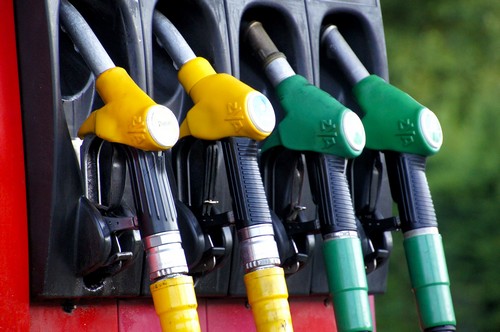
There is no instruction manual cars are not much help (or are?)
Take, for example, the Hyundai i10 from 2008. worthy. His instruction is said to be to use unleaded petrol octane number of 95 or higher octane. So, 95 I minimum, and the owner is free to pour petrol from 98 ili 100 octane.
However, also writes that can be used unleaded gasoline octane vrednostiod 91 do 94 octane, but that this will negatively affect engine performance. Nowhere does not specify whether and how much improvement will bring high-octane gasoline, nor how much gasoline with less than 95 octane decrease the force or torque.
Whether petrol from 98 ili 100 octane reduces fuel consumption?
Some drivers swear that they reduce consumption after they started using petrol from 100 octane, But just as is the case with the power and torque, not to bring any conclusions until a serious test.
What they say sellers of the high fuel?
One of the domestic chain pumps indicates that their petrol from 100 octane having the active components to a more efficient operation of the engine, improve his performance and make it more durable. It is alleged increasing engine power to 7%, up to 10% stronger acceleration at high speed and torque to increase 5%.
Second only cite the same or similar positive effects, but no percentage or other data.
High-octane petrol engines and helping the older generation in certain circumstances
The possibility of detonation is higher when the engine is at low rpm, a sharper driver presses the accelerator pedal. In such a situation can be noted advantage of gasoline 100 octane as compared to that of 95 octane. Of course you should never sharply accelerate from low speed when we are in a higher gear, but the fact is that many drivers are doing.
Perhaps just such drivers, After it receives the high octane fuel "clears" the consequences of the wrong style of their driving, although they are not aware of that at all, Most claim to have immediately noticed a huge difference in engine power when using petrol from 100 octane.
The situation is similar when the car is seriously burdened, going uphill or pulling a trailer, and if it comes to pushing the weaker atmospheric petrol whose owner is not aware that simply has to chase the more revs, that's the perfect scenario for the emergence of detonation in the engine. One characteristic is manifested by clicking / tapping, which is often said to bang valves.
Older motor that matter some problems in the functioning also can positively respond to gasoline with a higher octane number. However, the use of the high gasoline in this case is not the solution.
conclusion
If your car has the engine of the older generation, no need to buy a high octane fuel. In modern vehicles, there is no general answer to whether it's worth using gasoline from 98 ili 100 octane. Some engines will be able to feel the improvement in all operating conditions, some only when the car is very loaded and / or at low revs, and some owner will not feel any difference in relation to petrol from 95 octane.
Special additives are witnessed by written right are added to a high octane gasoline, because they in some engines with higher mileage-made in difficult urban conditions can over time to take off the layers with different components and thus there is a "podmađivanja" engine.
Author: Dragan Romčević
polled the: www.polovniautomobili.com

Hi there, I am Mladen and I am an auto enthusiast. I started this blog years ago to help like minded people share information about latest cars, car servicing ideas, used car info, exotic cars, and auto technology. You will find helpful articles and videos on a wide variety of cars – Audi, Mercedes, Toyota, Porsche, Volvo, BMW and much more. Ping us if you have anything cool to share on latest cars or on how to make older cars more efficient, or just want to say hi!


